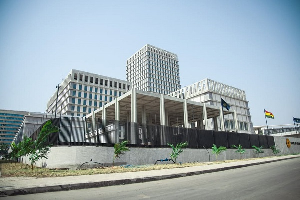The Urban Health Initiative (UHI) in collaboration with the World Health Organisation (WHO) has organized a day’s seminar in Accra, aimed at reducing diseases and deaths caused by air pollution and climate change.
It was to arm decision-makers with health-based tools to assess the impact of air pollution and sustainable urban policies in transport, land use, energy and housing for cities to reap benefit.
The seminar was attended by representatives from the Environmental Protection Agency, the Accra Metropolitan Assembly (AMA), Ghana Health Service and the School Help Education Programme of the Ghana Education Service.
Dr Desmond Appiah, the Chief Sustainability Advisor of the AMA, said the session helped to stimulate action among policy-makers and development actors to recognise and take pragmatic measures to improve air quality and climate pollutants as recommended by the UHI.
These were to discourage the use of motorcycles for commercial purposes, improving closer working partnership between the energy and transport sectors, promote coordination, data and information sharing, reporting, investment in mass transit, among others, he said.
Dr Appiah said various initiatives had been introduced in the recommendation of the UHI, which include the replacement of cooking fuels from wood to gas, waste separation and recycling, designated responsibilities for proper communication to all key stakeholders, good governance and allocation of budget, to tackle climate change and improve air quality.
Dr Owen Kaluwa, the WHO Country Director, said it was aimed at mobilising communities to reduce the impact of air pollution and climate change that affect their health.
He said the UHI would continue to explore and implement local innovative ways to reduce diesel vehicle emissions, promote sustainable public transport, increased access to green spaces and improved fuels and technologies for household cooking.
“Among other initiatives is to improve the quality of air in Accra and Ghana as a whole followed by outreach activities with medical doctors and health professionals to enhance their knowledge around the impact of air pollution and to identify its related issues,” Dr Kaluwa said.
He said the workshop was a major milestone of the UHI project, which would be followed by additional activities in Accra to mitigate short lived climate pollutants to benefit the people, mainly the most vulnerable ones like children.
Mr Ebenezer Appah-Sampong, the Executive Director of EPA said there was the need for an ambitious action plan built on existing initiatives with dedicated approach to air quality and climate change to help achieve the Sustainable Development Goals (SDGs) by 2030.
General News of Saturday, 18 May 2019
Source: GNA













